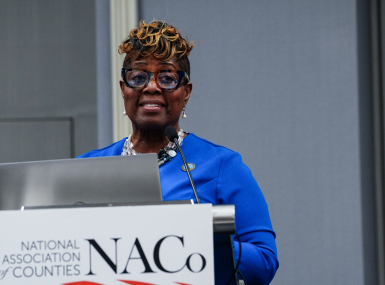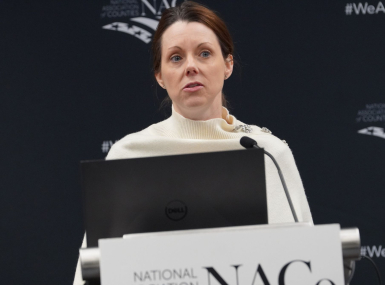State Funding for County Behavioral Health Crisis Services: Examples and Opportunities

Available On-Demand
This webinar is available on-demand. If you have issue accessing the recording, please email nacomeetings@naco.org.
State support can be pivotal for counties pursuing the sustainability and expansion of their local behavioral health crisis services and infrastructures. In this webinar, speakers will explore examples of state-funded initiatives that bolster county-level behavioral health crisis services. This session will share lessons learned from two different counties that have successfully navigated state funding opportunities to enhance their crisis response systems. Participants will gain insights into the potential avenues for securing and utilizing state funds, learn about the challenges and triumphs experienced by county programs, and discover new opportunities to strengthen their local behavioral health services.
Hosted by the National Association of Counties (NACo) in partnership with The Pew Charitable Trusts and the MacArthur Foundation, this presentation will offer information and inspiration to support county efforts in addressing behavioral health crises using new or existing services.
Resource

County Funding Opportunities to Support Community Members Experiencing a Behavioral Health Crisis
To inform local decision making, the National Association of Counties (NACo) and the National Association of County Behavioral Health and Developmental Disability Directors (NACBHDD) developed a chart of funding opportunities across federal, state and county governments and non-government sectors. This funding chart can help county leaders identify possible funding streams to build and strengthen local behavioral health crisis response continuums.
The funding sources reflect opportunities across behavioral health, criminal legal and related systems. Due to the cross-sector nature of crisis response, some sources focus on certain populations, like youth, while others target a certain supportive piece of the crisis continuum, like workforce or training. Counties can blend and braid these resources to build a robust, accessible and sustainable behavioral health crisis continuum of care.





